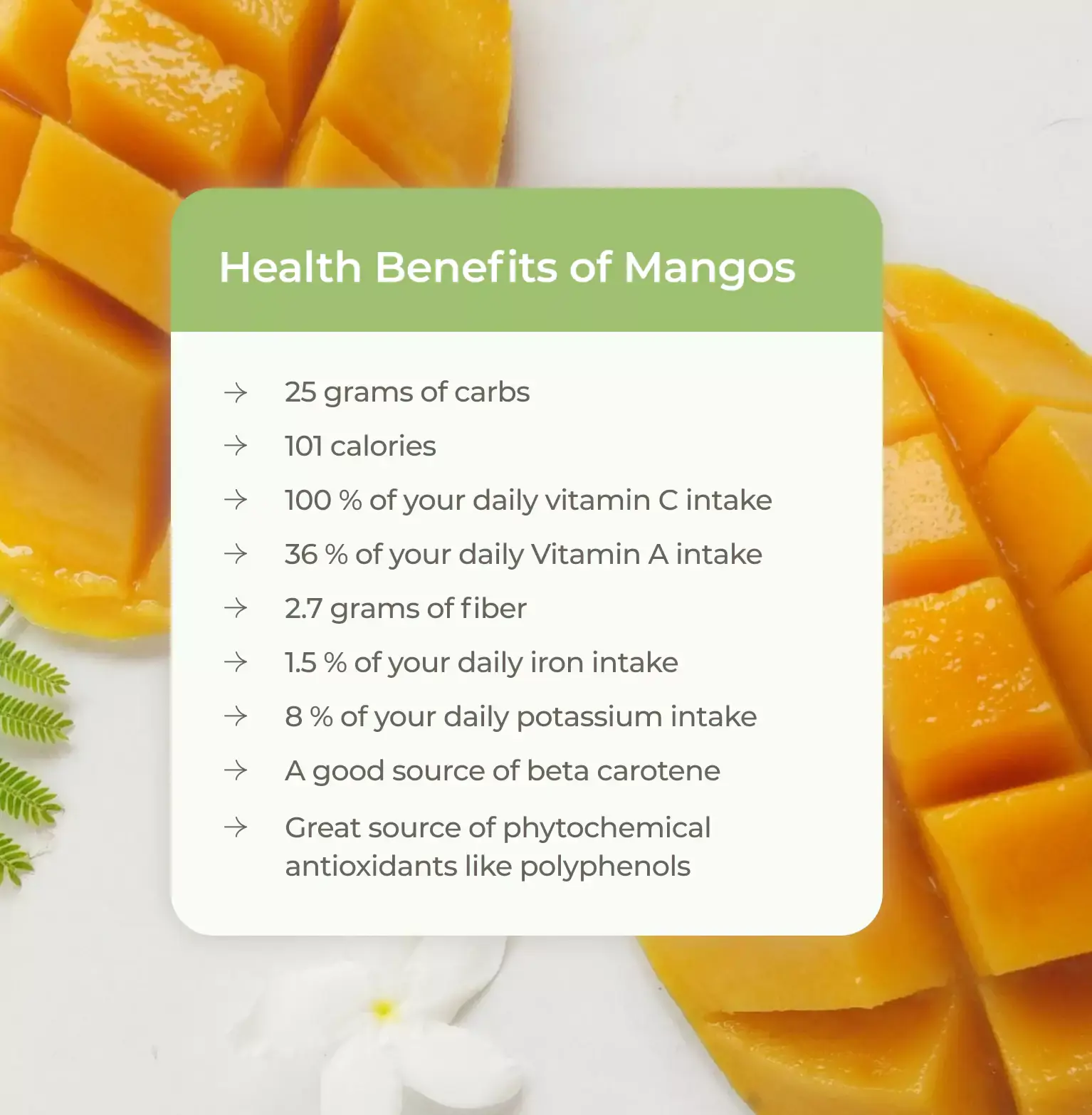Mangoes are undoubtedly one of the most beloved tropical fruits worldwide. Their luscious sweetness and succulent flesh make for the perfect snack or ingredient in various dishes. But have you ever wondered how much sugar lurks in this tropical delight? The question has crossed many health-conscious individuals’ minds, primarily those mangoes known for their high nutritional value, but their sugar content concerns many.
This blog post will dive deep into mangoes, uncovering the truth about their sugar content and whether they are a healthy addition to your diet. So sit tight and get ready to discover everything you need to know about how much sugar is in mango fruit. Are you prepared to dive deeply into the world of vitamins, minerals, and natural sugars? Let’s get started!
How many carbs are in a mango?
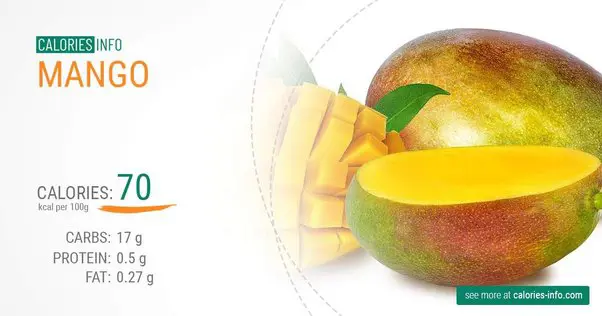
Mangoes, with their luscious and sweet taste, are a delightful source of essential nutrients that contribute to your overall health. They overflow with fiber, vitamins, and minerals your body requires to function optimally. A cup of juicy fruit contains 24.7 grams of carbohydrates and 2.6 grams of fiber, translating to 22.5 grams of naturally occurring sugar. That said, it’s crucial to note that an average mango contains forty-five grams of sugar, so practicing moderation and mindful eating is essential. A cup of fresh mango provides 99 calories in terms of caloric value, making it a tasty and guilt-free snack.
How many calories are in a cup of dried mango?

Well, let me tell you that just one cup of dried mango, weighing about 160 grams, packs in a whopping 510 calories! And that’s not all—it also contains a staggering 106 grams of sugar, making it an indulgent treat that can lead to unhealthy weight gain. With a higher calorie density than its fresh counterpart, there may be better options than dried mango for those looking to maintain a healthy weight.
However, it retains its nutrient value, with plenty of vitamins, minerals, and antioxidants, making moderation the key to enjoying this sweet and delicious snack. So treat yourself, but watch your portions to ensure you don’t exceed your daily calorie and sugar intake.
Are mangoes bad for people with diabetes?
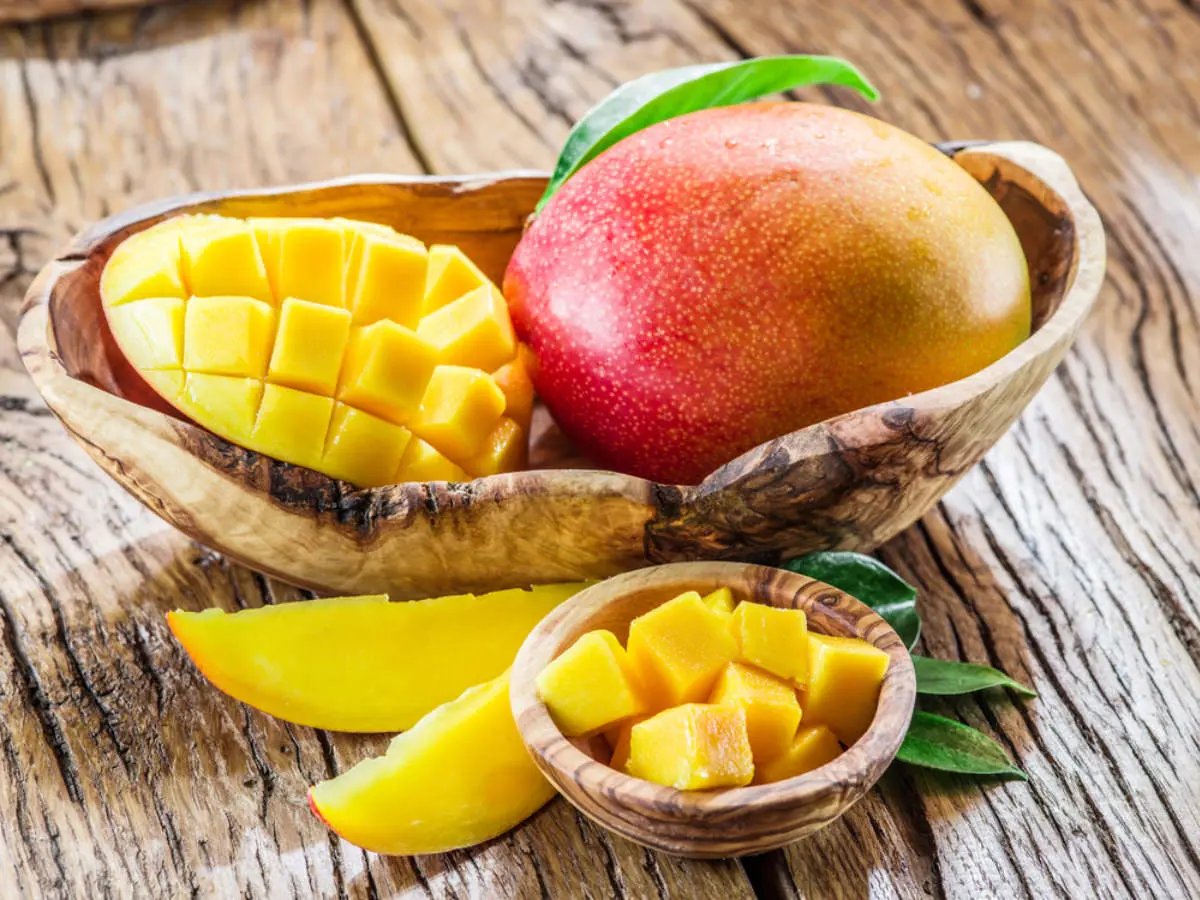
Suppose you are concerned about the impact of mangoes on your blood sugar levels as a person with diabetes. In that case, it’s essential to understand that mangoes contain significant amounts of natural sugar. There are several sweet fruits that people with diabetes should be wary of, including watermelons and mangoes, as they tend to have a comparably high sugar content compared to other fruits.
While it’s true that mangoes have less sugar than other sugary foods, with one mango containing 45 grams of sugar, it’s still important to regulate your intake of them as a person with diabetes. Excessive consumption of mangoes may lead to a spike in blood sugar levels, harming your health. So, if you’re wondering, “Are mangoes bad for diabetics?” the answer is that moderation is the key.
Is mango OK for people with diabetes?
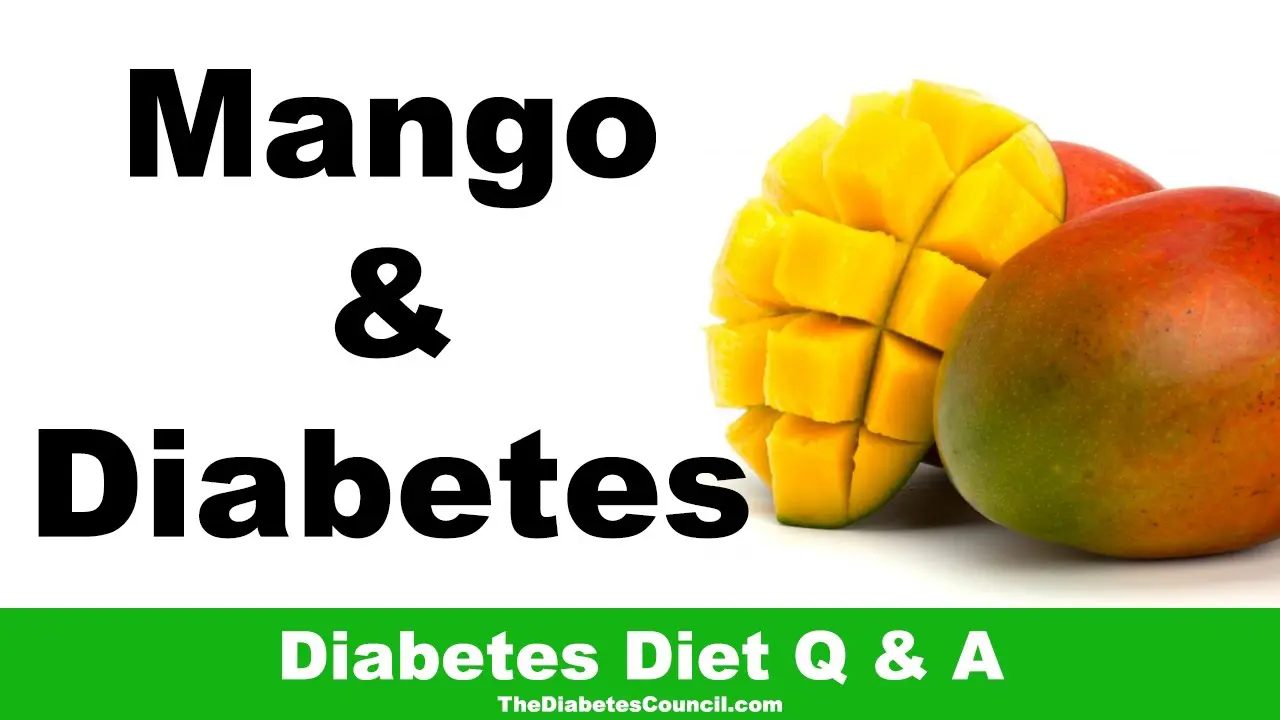
You may wonder if mango suits people with diabetes and is OK for people with diabetes. It’s essential to remember that a healthy diet is crucial for managing diabetes. One way to ensure your diet consists of healthy foods is by considering each item’s glycemic index (GI). Any food with a GI below 55 is considered low and may be a good choice for people with diabetes.
Fortunately, mango falls within this category, with a GI of 51. Therefore, you can safely include mango in your diet if you have diabetes. Additionally, this fruit is a good source of vitamin C, vitamin A, and fiber, making it a nutritious addition to any meal.
Which fruit is the lowest in sugar?
Learn which fruits have the lowest sugar content to satisfy your sweet tooth without breaking the bank.
- Lemons and limes are high in vitamin C, and lemons and their green counterparts are somewhat sour fruits.
- Raspberries.
- Strawberries.
- Blackberries.
- Kiwis.
- Grapefruit.
- Avocado.
- Watermelon.
Which fruit is highest in sugar?
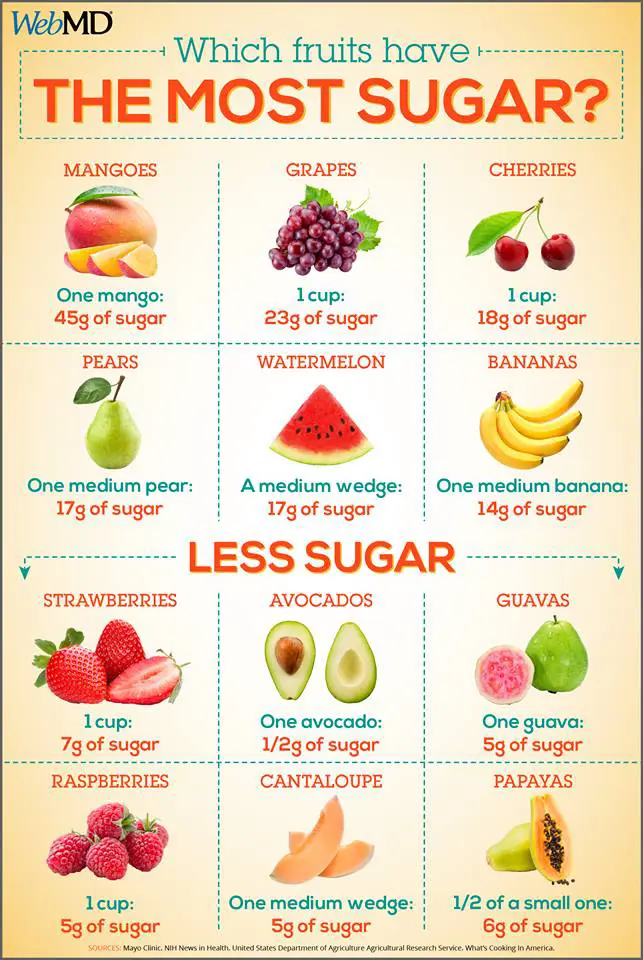
Well, to satisfy your curiosity, let me tell you that mangoes, pomegranates, oranges, and pears have the highest sugar content among all the fruits out there. But this doesn’t mean that people with diabetes should avoid them altogether. Despite their sweetness, these fruits are still packed with essential nutrients and can be included in a healthy diet.
However, people with diabetes must talk to their doctor or a registered dietitian to determine the appropriate serving sizes and frequency of consumption. It’s always better to be safe and mindful of your dietary choices, especially when managing a health condition like diabetes.
Is it OK to eat a whole mango?
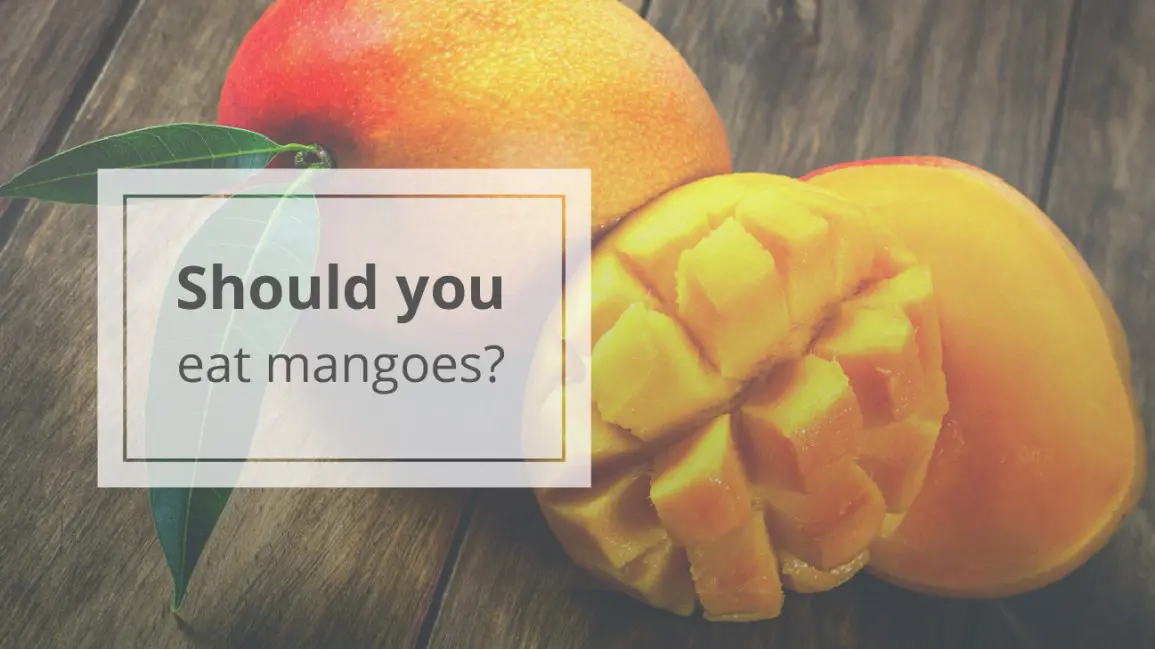
And my response is a resounding yes! Not only is the juicy pulp of a mango deliciously sweet and satisfying but the peel and kernel are also entirely edible and brimming with health-boosting nutrients. The succulent pulp, enriched with vitamins A and C, helps to promote healthy skin, boost immunity, and support eye health.
Meanwhile, the peel is loaded with fiber, antioxidants, and anti-inflammatory compounds, aiding digestion and fighting disease. And let’s remember the kernel. It may be small but it packs a powerful punch of beneficial fatty acids and protein. So for all those mango lovers out there, go ahead and indulge in eating the whole fruit—your body will thank you!
Do mangoes raise your blood sugar?

The answer is yes, but the surge is less abrupt and intense than consuming white bread. Despite being a sweet tropical fruit, mangoes have a moderate glycemic index, which indicates how quickly a specific food raises blood glucose levels. The good news is that you can still enjoy this luscious fruit in moderation without significantly impacting your blood sugar levels.
Consuming half a mango daily is considered safe, but if you want to indulge in an entire medium-sized mango, you must be mindful of your fruit intake for the rest of the day. To maintain a balanced diet, it’s recommended to substitute other fruits with two servings of mango, one at a time. Remember, moderation is key!

